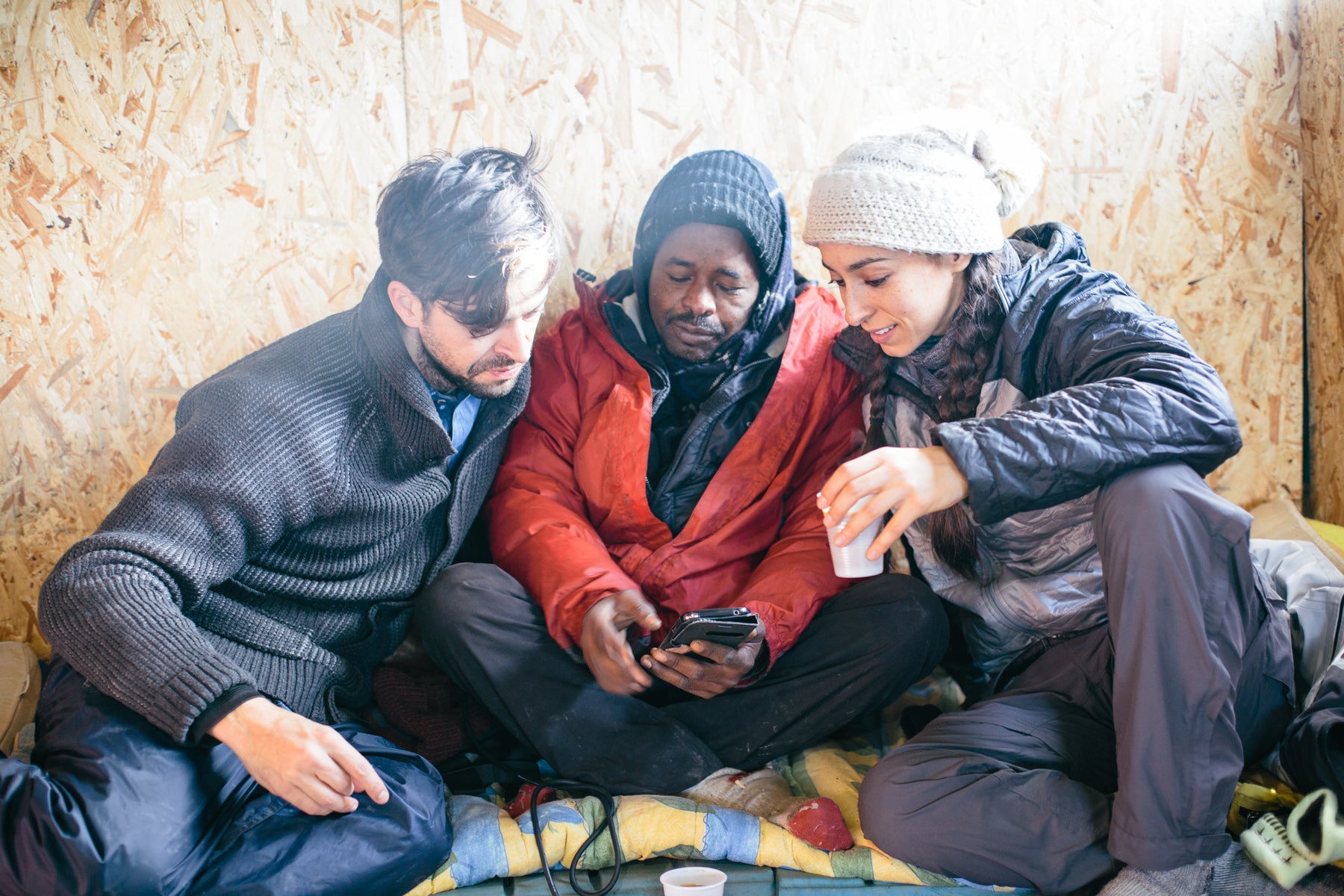The Independent's journalism is supported by our readers. When you purchase through links on our site, we may earn commission.
The Calais Jungle isn’t a refugee camp, it’s a camp full of refugees – and there’s a huge difference
In a refugee camp there are usually two nationalities, at max. But there are over 70 restaurants and cafés in the jungle catering to its well-educated, middle class clientele confined to freezing tents

Walking into the Jungle five days ago I instantly felt ashamed. I thought that I was walking into a dark and dangerous place. That I was walking into hell. In truth it's much more like purgatory. These people are stuck. They can't go back. They can't go forward. So they wait.
We, the British public, are labouring under some fundamental misapprehensions. The Jungle is not a refugee camp. It is a camp full of refugees and the distinction is important. There are over 15 nationalities peacefully (in the main) coexisting. In a refugee camp there are usually two nationalities, at max. There are over 70 restaurants and cafés in the jungle, countless small shops selling toothpaste, toilet paper and chocolate. There are two churches, three mosques, a theatre, a library and a women’s centre.
“What lives in the Jungle?” asks Ali, the 42-year-old representative of the Syrian community, “Animals live in the Jungle. Not humans,” he says. “We are just numbers to the West. Who cares? No one.” Ali has a Bachelor’s degree in economics and a Masters in business. Well educated and middle-class, he was a successful businessman who owned a chain of supermarkets in Syria. For the last six months he’s lived in the sort of dehumanising squalor that I found hard to grasp. “I tell myself that I arrived yesterday,” he says. “I upload that story to my brain every morning and it keeps me sane. I’ve seen a lot of people lose their minds in this place. It’s a very unhealthy environment.”

Ali tells me that last week he and other community leaders met for the first time with representatives of the United Nations High Commissioner For Refugees (UNHCR). The UNHCR informed the community leaders that they still had no plan of what to do about the refugee crisis. That they had no idea what would happen to the 5000+ residents of the jungle.
The UNHCR were apologetic, he adds. But talk is cheap and winter with its sub-zero temperatures, is here, now. The French authorities have repeatedly used tear gas and rubber bullets on the camps’ members. Even heavily pregnant women and minors, the most vulnerable, have been victims, he tells me. He closed the meeting with a plea to the UNHCR, “If you can’t help us, please don’t hurt us.”
There are estimates of over 500 former British army interpreters in the Jungle who have fled their homes after our armed forces withdrew from Iraq, Afghanistan and Libya. These men, who actively assisted our armed forces are surely owed better than this by our society. How is the role these brave men played in our recent wars any different from that of the Gurkhas whom we venerate? There is a proud tradition in the Conservative Party of honouring the debt that service with our army brings and currently it is not being paid. A number of opposition MPs have made the trip but not a single Conservative backbencher or minister has ever set foot inside the camp to have their own preconceived notions shattered. It’s a disgrace.
“I respected the British Officers I served with,” says Mohammed Nabi, a 33 years old Afghan who served as an interpreter for six years. “But now I am nothing. Now I have no utility.” To stay sane Mohammed tells me he does as much for other members of the camp as he can. Even setting up a Twitter account and moderating a Facebook group called Refugee Voices2015. Mohammed’s English is immaculate. We discuss Charlie Brooker and the new angle Justin Bieber is taking. It breaks my heart.
Mohammed shared a tent for three months with 15-year-old minor, Masud, who despite a legitimate claim to asylum in the UK was forced, out of desperation, to risk his life and suffocated to death in a lorry, prompting a media storm. I can’t bear to talk about it in depth and I sense neither can Mohammed anymore.
Unaccompanied minors and former British army interpreters may eventually be granted entry to the UK but for the rest of those stuck in the Jungle the future is dire. Momentum is building and as winter sets in public opinion is changing. But unless our government acts now the majority of the people I met may well be dead within the next couple of months. The political question of how to deal with the global refugee crisis is a big one, but the personal question we should all be asking ourselves couldn’t be simpler: How do you want to treat people?
Jolyon Rubinstein is a BAFTA winning filmmaker, writer and performer. If you would like to donate to building a shelter in Calais please click here.
Join our commenting forum
Join thought-provoking conversations, follow other Independent readers and see their replies
Comments
Bookmark popover
Removed from bookmarks